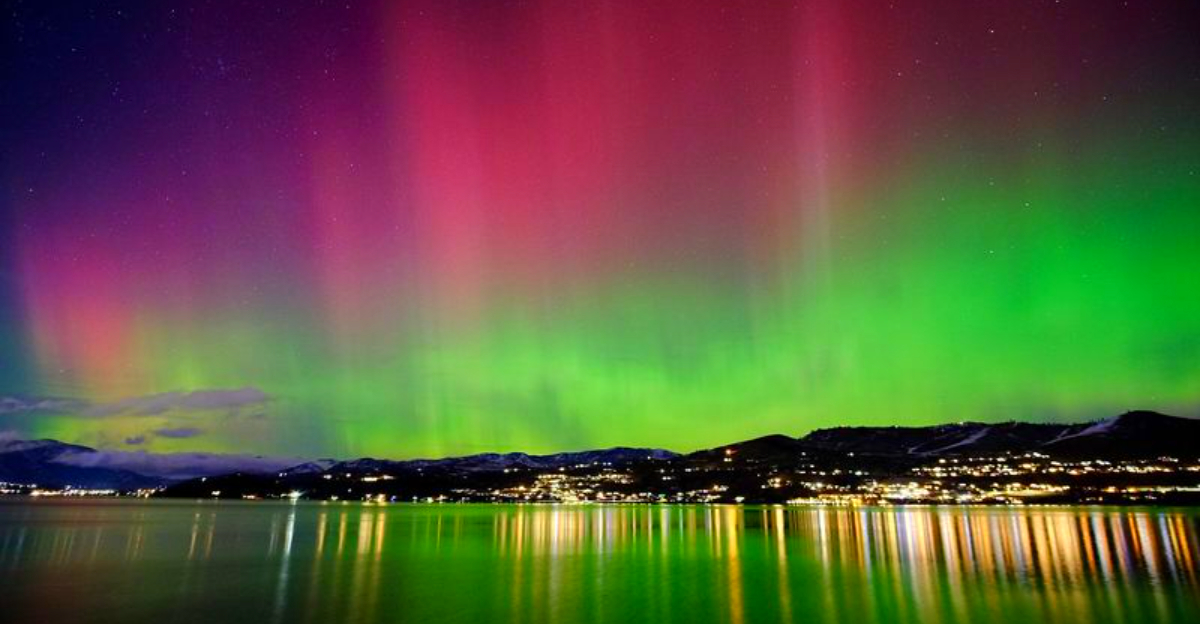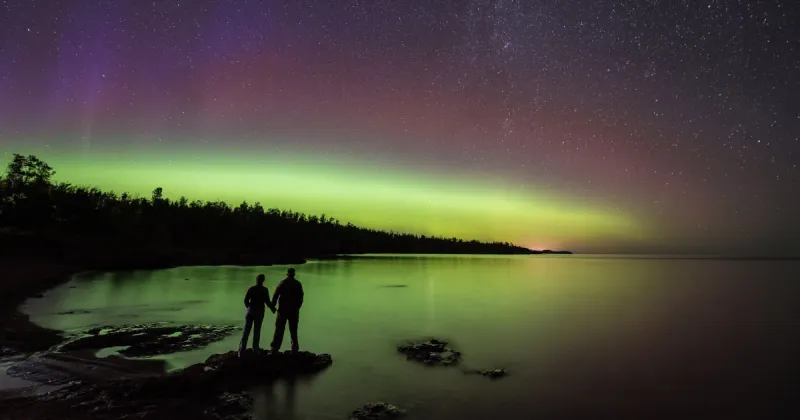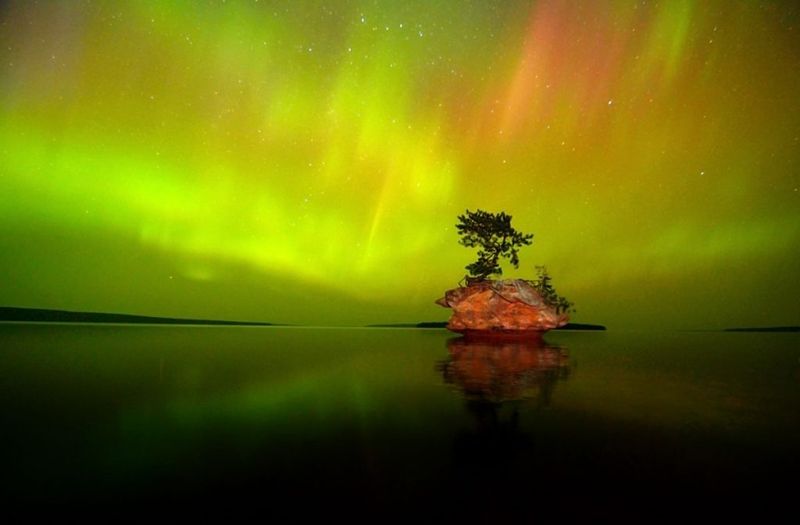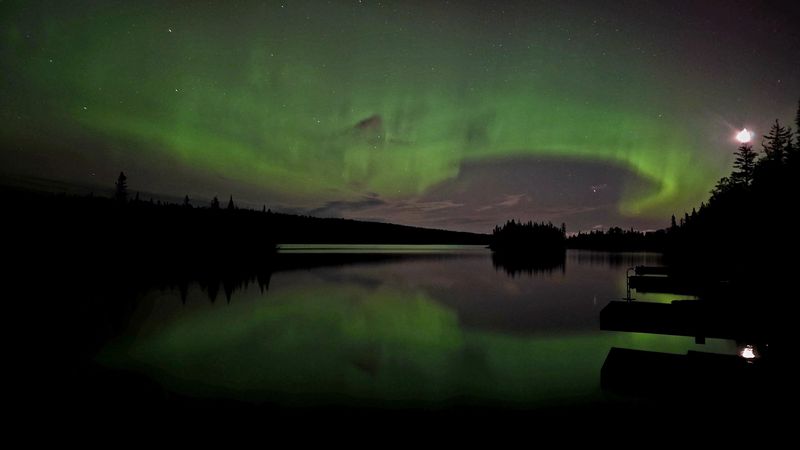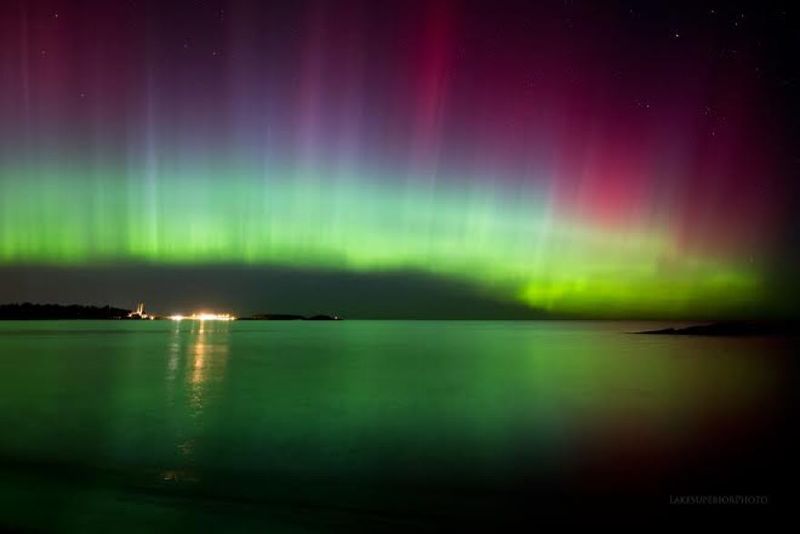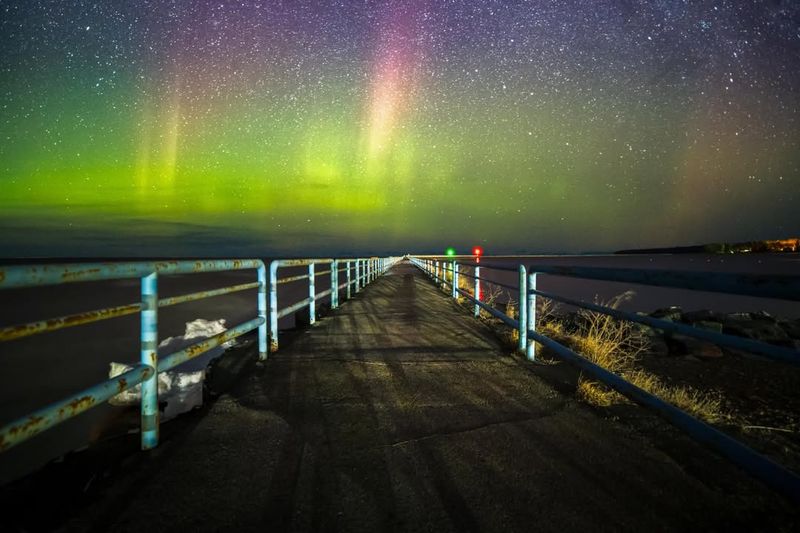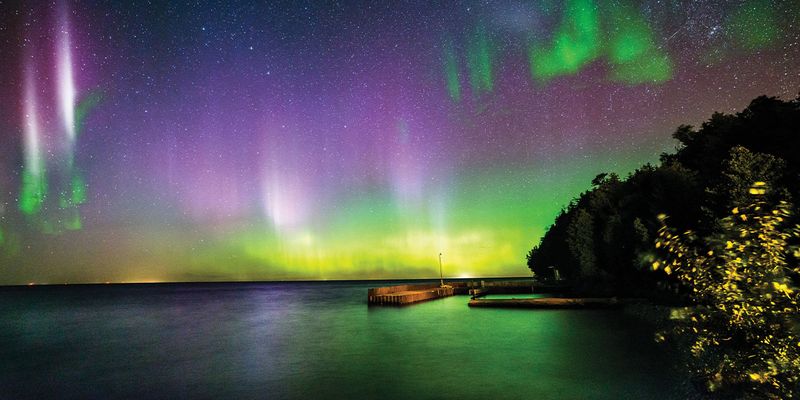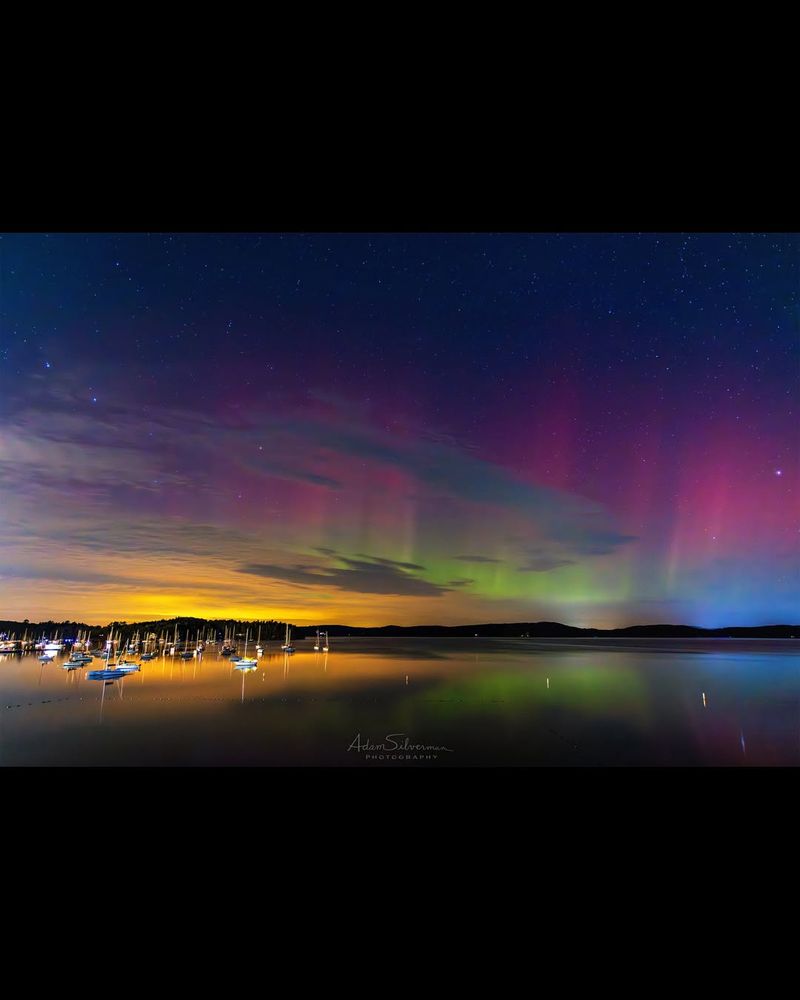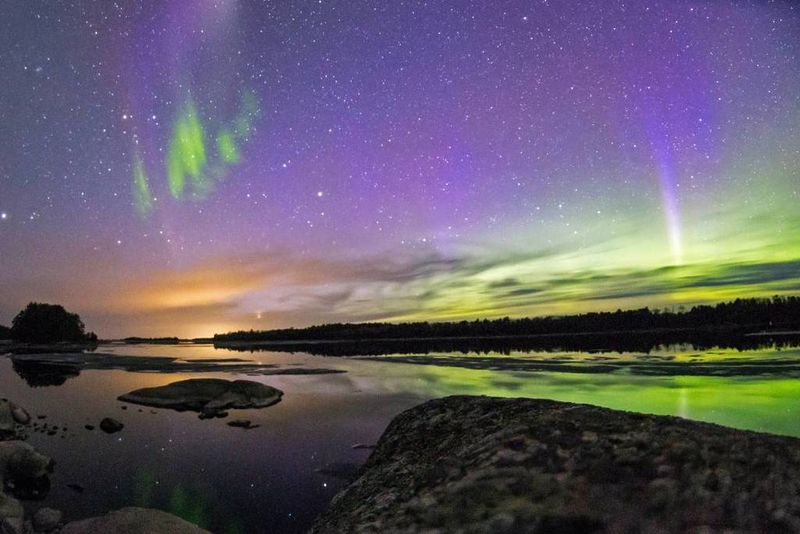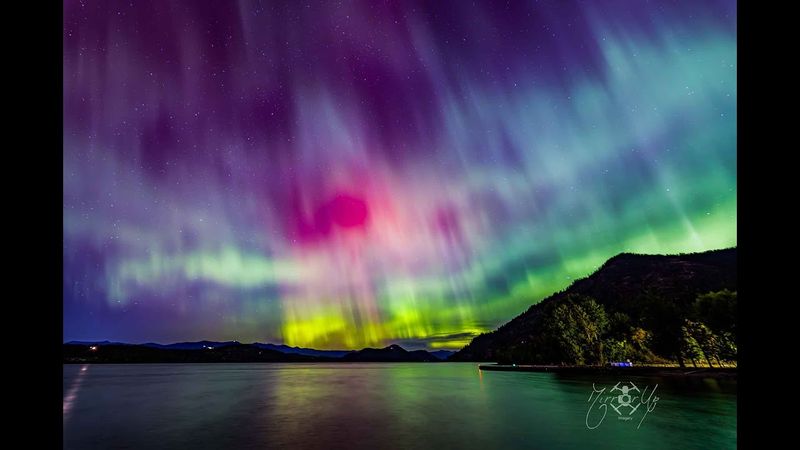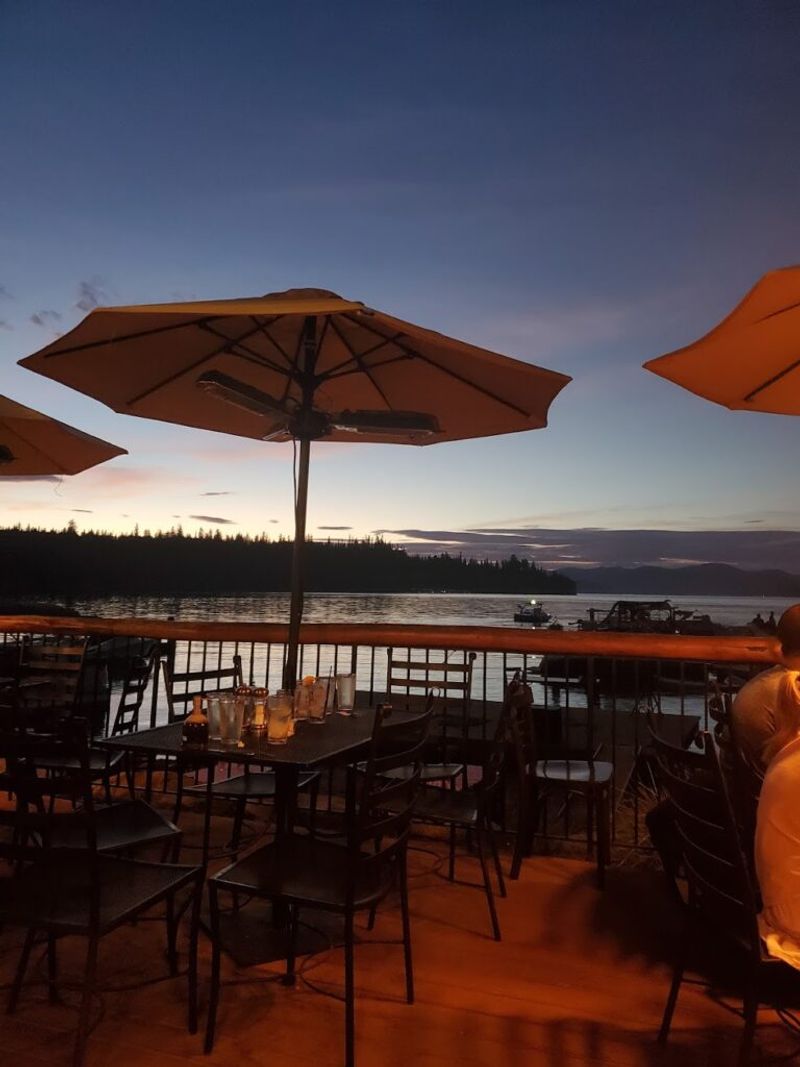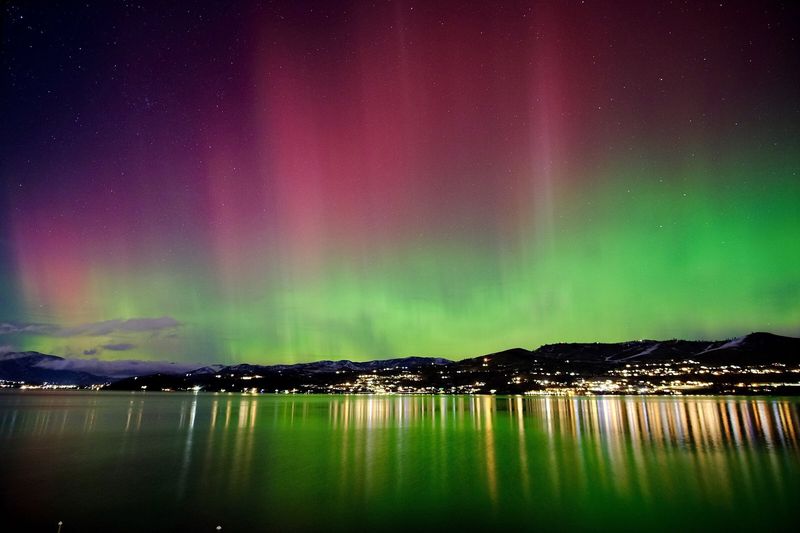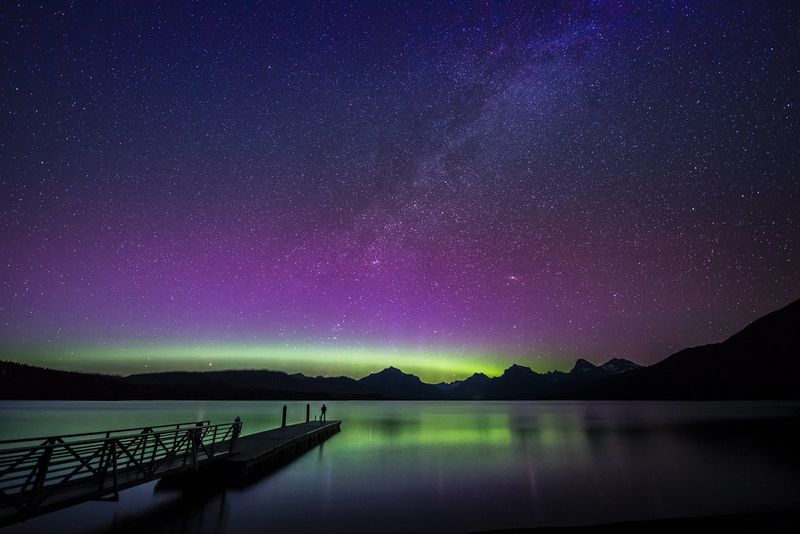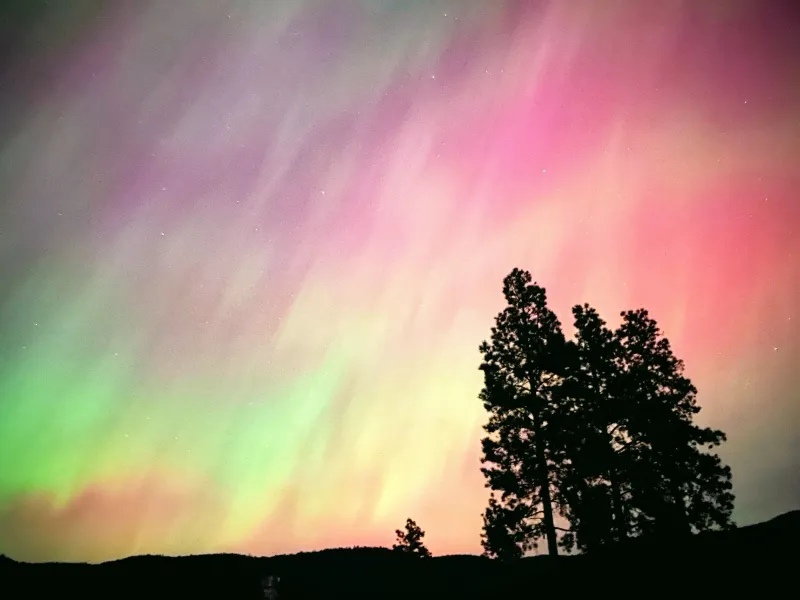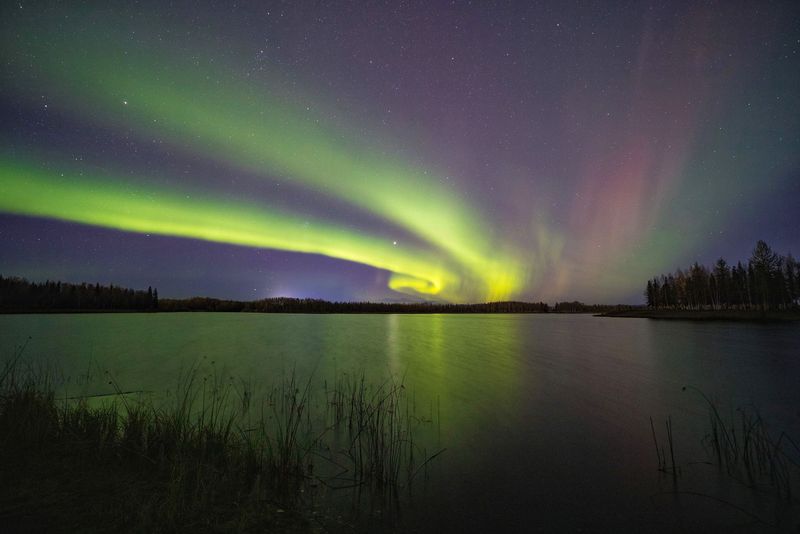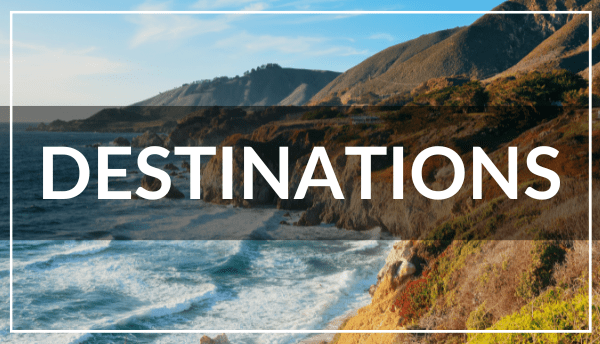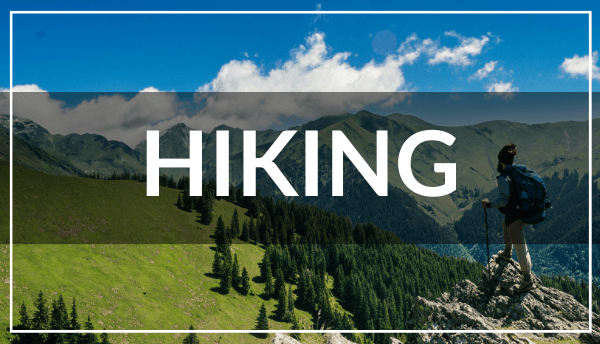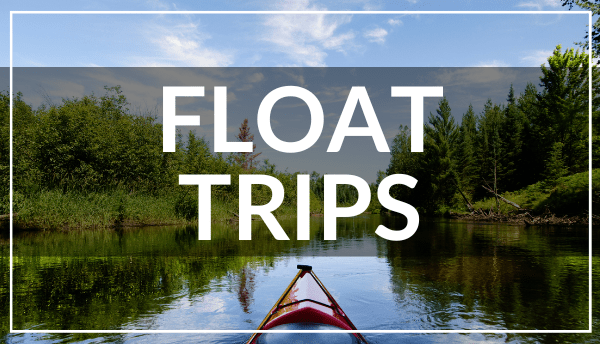Have you ever dreamed of watching the shimmering curtains of the northern lights dance across the sky? You don’t need to book a flight to Iceland or Norway to witness this natural wonder. Right here in the United States, there are stunning lakeshores where the aurora borealis occasionally lights up the night, painting the water and sky in brilliant greens, purples, and reds that will leave you breathless.
1. Minnesota’s North Shore of Lake Superior (Cook County to Two Harbors, MN)
Stretching from Cook County down to Two Harbors, this legendary stretch of shoreline offers some of the most reliable aurora viewing in the Lower 48. Long, north-facing vistas over Superior give you an unobstructed view of the horizon where the lights emerge.
Light pollution is almost nonexistent here, making every flicker of green or purple stand out against the star-studded sky. Popular pull-offs include the Split Rock area, Tettegouche State Park, and beaches near Grand Marais.
Locals often gather at these spots during strong geomagnetic storms, cameras ready. The reflection of the aurora on Superior’s dark waters doubles the magic, creating a mirror image that feels almost otherworldly.
2. Pictured Rocks National Lakeshore, Lake Superior (Munising/Grand Marais, MI)
Famous for its towering sandstone cliffs and turquoise water, Pictured Rocks also happens to be a fantastic spot for aurora chasers. The south shore faces north across Superior, giving you a direct line of sight to where the lights appear.
With 24-hour lakeshore access, you can arrive anytime the forecast looks promising. Broad horizons mean nothing blocks your view of the sky’s electric dance.
The National Park Service confirms that this area offers excellent stargazing and occasional aurora displays. Bring a blanket, settle on the beach, and wait for nature’s light show to begin. The combination of cliffs, water, and sky creates a backdrop you won’t forget.
3. Apostle Islands National Lakeshore, Lake Superior (Bayfield, WI)
Designated as a “starry skies” viewing site, the Apostle Islands offer dark lake horizons perfect for spotting the northern lights. Whether you’re standing on the mainland beaches or camping on one of the islands, the lack of artificial light makes every celestial event more vivid.
The Friends of the Apostle Islands organization highlights this area as a prime location for night sky enthusiasts. Overlooks and beaches provide unobstructed views of the aurora when it dips south.
Pack warm layers and a thermos of hot cocoa, because you’ll want to stay outside for hours. The stillness of the lake and the remoteness of the islands amplify the sense of wonder.
4. Isle Royale National Park (in Lake Superior, MI)
Imagine being on a remote island in the middle of Lake Superior, surrounded by some of the darkest skies in the Lower 48. That’s Isle Royale for you. This wilderness park is so far from city lights that even faint auroras become visible.
Occasional northern lights displays have been documented here, and the solitude makes the experience even more magical. You’ll need to plan ahead, as access requires a ferry or seaplane.
Once you arrive, the island’s trails and rocky shores offer countless vantage points. Stargazers and aurora hunters alike consider this a bucket-list destination. The combination of isolation and natural beauty is unmatched.
5. Headlands International Dark Sky Park, Lake Michigan (Mackinaw City, MI)
Officially recognized as an International Dark Sky Park, Headlands boasts more than two miles of undeveloped Lake Michigan shoreline. Year-round night access and special programming make it a favorite among aurora watchers.
The park’s designation means strict light controls protect the natural darkness, so even subtle auroras shine through. Rangers and volunteers often host viewing events when geomagnetic activity spikes.
Families, photographers, and curious travelers gather here, eyes glued to the northern horizon. The sound of waves lapping against the shore adds a calming soundtrack to the visual spectacle above. It’s a place where science and nature meet in the most beautiful way.
6. Port Crescent State Park Dark Sky Preserve, Lake Huron/Saginaw Bay (Port Austin, MI)
Designated by the Michigan DNR as a dark-sky preserve, Port Crescent offers a dedicated 24/7 viewing platform right by the lake. The day-use beach area transforms into an astronomer’s paradise after sunset.
In 2025, the campground reopened after major upgrades, making overnight stays even more comfortable. Saginaw Bay’s wide-open waters provide an unobstructed northern view, perfect for catching the aurora.
Local astronomy clubs frequently visit, sharing telescopes and stories under the stars. When the northern lights appear, the reflection on Lake Huron doubles the drama. It’s a hidden gem that deserves more recognition among aurora enthusiasts.
7. Door County, Lake Michigan (WI)
With hundreds of miles of Lake Michigan shoreline far from major city glow, Door County is a natural choice for aurora watchers. Local tourism boards highlight occasional northern lights sightings, especially during strong solar storms.
Quaint towns and lighthouses dot the peninsula, offering charming places to stay while you wait for the sky to light up. The combination of rural darkness and expansive water views creates ideal conditions.
Many visitors report seeing the aurora from their cabin porches or while walking along the beach. The peaceful atmosphere and natural beauty make Door County a year-round destination, but aurora season adds an extra layer of magic.
8. Lake Champlain (VT/NY), Malletts Bay & the Causeway, Colchester/Burlington, VT
During strong geomagnetic storms, Lake Champlain becomes a stage for the northern lights. Malletts Bay and the Lake Champlain Causeway area offer open, north-facing lake views that maximize your chances.
Vermont Public has documented aurora displays here, confirming that this isn’t just wishful thinking. The causeway, in particular, provides a unique vantage point with water on both sides.
Photographers love the reflections on the calm lake surface, which can turn a good aurora into a stunning double feature. Burlington’s proximity means you can enjoy city amenities before heading out to the dark shores. It’s a convenient yet rewarding spot for aurora hunters.
9. Rainy Lake & Voyageurs National Park (MN)
Miles of wilderness shoreline with virtually no light pollution make Voyageurs National Park a dream destination for stargazers and aurora watchers. Rainy Lake’s vast waters stretch out under the night sky, offering unobstructed views in every direction.
Local park partners suggest specific lakefront viewing tips, helping visitors find the best spots. The remoteness of this area means you might have the aurora all to yourself.
Canoeing or kayaking at night adds an adventurous twist to your aurora hunt. The silence of the wilderness amplifies the sense of awe when the lights finally appear. It’s a place where nature still reigns supreme.
10. Lake of the Woods & the Northwest Angle (far N. MN)
Minnesota tourism singles out Lake of the Woods and the Northwest Angle as prime dark-sky territory. This remote region, tucked into the far north, offers some of the best aurora viewing in the continental United States.
Broad water horizons mean nothing blocks your view of the northern sky. The Northwest Angle’s isolation adds to the experience, making you feel like you’ve traveled to another world.
Fishing resorts and cabins cater to visitors who come for the outdoors, and aurora season brings a special kind of guest. When the lights dance overhead, reflecting on the lake’s surface, you’ll understand why people make the long drive north.
11. Lake Pend Oreille, Sandpoint (ID)
Sandpoint locals know that the aurora occasionally reaches this far south, especially during elevated solar activity. Lake Pend Oreille’s expansive waters provide the perfect foreground for these rare celestial events.
The Idaho Club and other local sources repeatedly mention aurora sightings, confirming that this isn’t just a fluke. The lake’s depth and clarity make the reflections even more dramatic.
Mountain peaks frame the horizon, adding to the scenic beauty. Sandpoint’s small-town charm and outdoor recreation options make it a great base for aurora hunters willing to wait for the right conditions. When the lights do appear, the entire community buzzes with excitement.
12. Priest Lake (ID)
State tourism and local resorts repeatedly recommend Priest Lake for aurora nights, especially when the Kp index climbs. This northern Idaho gem combines pristine wilderness with dark skies, creating ideal conditions for spotting the lights.
Resorts around the lake often notify guests when aurora forecasts look promising. The sense of community among aurora watchers here is strong, with people sharing tips and sightings.
Dense forests surround the lake, so finding a clear shoreline is key. Once you do, the combination of water, trees, and sky creates a scene straight out of a dream. It’s a lesser-known spot that rewards those who venture off the beaten path.
13. Lake Chelan (WA)
Central Washington might not be the first place you think of for aurora viewing, but Lake Chelan has periodic reports during strong geomagnetic events. Local news outlets have documented displays, proving that the lights can reach this far south.
The lake’s long, narrow shape and surrounding mountains create a dramatic setting. Vineyards and orchards line the shores, offering a unique blend of agriculture and natural beauty.
Visitors often combine wine tasting with aurora watching, making for a memorable trip. When the sky lights up, the reflection on Chelan’s clear waters is breathtaking. It’s a reminder that nature’s wonders can surprise you anywhere.
14. Lake McDonald, Glacier National Park (MT)
Glacier National Park’s Lake McDonald is a signature Montana aurora vantage point. The National Park Service and regional guides highlight its north-facing views and reflections as key features.
Surrounded by towering peaks, the lake creates a natural amphitheater for the lights. The stillness of the water at night mirrors the aurora perfectly, doubling the visual impact.
Photographers flock here during peak aurora season, tripods lined up along the shore. The park’s remote location and strict light controls ensure that even faint auroras are visible. It’s a bucket-list destination for anyone serious about chasing the northern lights in the United States.
15. Flathead Region Lakes (e.g., Flathead & Whitefish Lakes), NW Montana
The Flathead valley sees aurora displays during stronger storms, and local media documented the spectacular May 2024 event. Flathead Lake and Whitefish Lake are both flagged as viable spots by regional guides.
These lakes offer a mix of accessibility and natural beauty, with plenty of public access points. The surrounding valley’s low light pollution enhances visibility.
Resorts and campgrounds around the lakes cater to outdoor enthusiasts, and aurora season adds a special draw. When the lights appear, the entire valley seems to hold its breath. It’s a place where Montana’s big sky truly lives up to its name.
16. Chena Lake Recreation Area (near North Pole/Fairbanks, AK)
Alaska gives you the highest odds of seeing the northern lights anywhere in the United States, and Chena Lake is a classic spot. Wide horizons stretch out beyond the city glow, making every aurora display vivid and unforgettable.
Explore Fairbanks and Alaska aurora guides consistently recommend this area. The lake’s calm waters reflect the lights beautifully, creating a scene that feels almost surreal.
Winter visits mean bundling up, but the payoff is worth it. Locals treat aurora viewing as a regular activity, not a rare event. If you’re serious about seeing the northern lights, Chena Lake should be at the top of your list.
